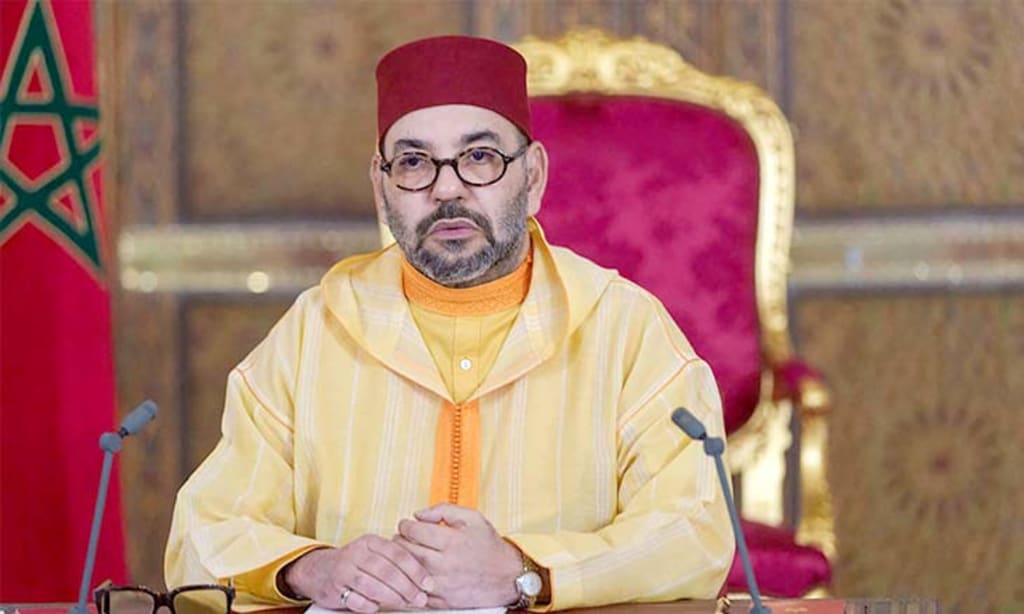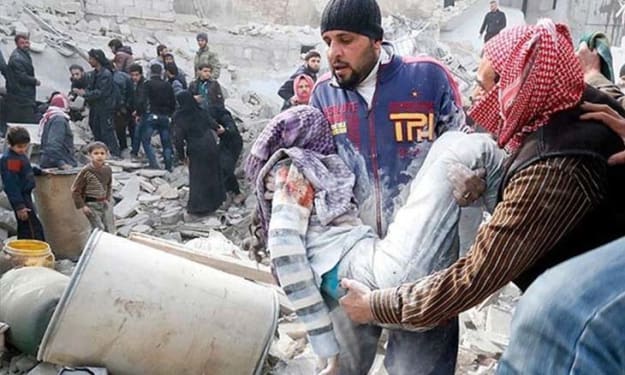
During this week, Moroccan-Spanish relations witnessed an exciting development, which confused all the reassuring statements of the Spanish Foreign Minister, Jose Albares, about the imminent return of these relations and the end of the stalemate in them. Amin Tikaa, two senior officials at the same embassy.
Some Spanish sources tried to mitigate the impact of this decision, considering that it was related to the retirement of the person responsible for the embassy's work. However, on the other hand, other Spanish media outlets interpreted the decision as a Moroccan reaction to two letters of protest from Spain to the Moroccan embassy against the background of two issues: the fish farms that Morocco set up near the waters belonging to the islands that it considers occupied by Spain, and the statements of the Moroccan Ministry of Health. Which accused the Spanish authorities of not respecting the preventive measures in transporting travelers from its airports to Morocco.
In fact, there is a great confusion surrounding the level of current relations between Rabat and Madrid, and indicators of tension and calm. Rabat’s termination of the work of these officials in its embassy in Madrid means reducing the level of representation to its lowest level, meaning that the relationship has worsened, unlike the reassuring statements of the Spanish Foreign Minister, as he was trying It is to convince the inside that relations are soon to return, and that some calm is needed for diplomacy to bear fruit.
There is no doubt that Alparis' reassuring statements were not only for consumption, or to give legitimacy to his new role and mission after relieving his predecessor, Arancha Gonzalez Laya, which caused tension in the relationship with Rabat. The revolution of the King and the People in the summer of last year, in which he talked about building a strong relationship, in addition to opening up to the Spanish Embassy, and involving it in a number of events, after it was absent from it, without losing sight of the continuation of security cooperation and coordination, and the presence of contacts - of some kind. On the diplomatic level, its nature and level were not disclosed.
Since his appointment at the head of his country's diplomacy, the Spanish Foreign Minister has tried to convince by all means that there is no interest in the tension in the relationship with Morocco, trying to answer the pressures of some parties in Spain. With Morocco, it did not hide its desire to move the military card, in response to Rabat’s policy that led to the economic and commercial strangulation of Ceuta and Melilla. Rather, it greatly exaggerated the military capabilities of Morocco, and tried to pressure the Madrid government not to continue its waiting policy towards Rabat.
In fact, the matter is not only limited to the political elites who rule the occupied areas, but also goes back to another vision, borne by the security and military elites in Spain, which has become unable to continue waiting for the fruits of Jose Manuel Alparis’ diplomacy, although it hastened to reassure and answer the concerns that Some political parties show Morocco’s capabilities and the possibility of exceeding the threshold of the strategic military balance. They have tried to find a way to interfere and influence the approach of Jose Manuel Alparís, as it reflects the new national security strategy adopted by Madrid recently, and the conditions it included, and its direct criticism of Morocco, and its talk about “cooperation” The Savior” and on the need to respect the borders of Spain (meaning Ceuta and Melilla). This strategy reflects the new vocabulary imposed on Spanish diplomacy, and the constraints with which Madrid hampered the efforts of José Manuel Albarís to mend the relationship with Rabat.
The irony is that after the approval of this security strategy, which undoubtedly disturbed Rabat, the statements of Spanish King Felipe VI, in line with the language of Jose Manuel Albaris, affirmed his country's adherence to the strength of diplomatic relations between Madrid and Rabat in order to overcome the current political dispute, and the importance of redefining The relationship between the two countries is on “stronger and more solid foundations,” trying in these statements to refer to the issue of the dispute, that is, the Sahara, by emphasizing Spain’s adherence to its position in this dispute represented in supporting the international dialogue between Rabat and the Polisario, and then new statements came to the Spanish Prime Minister. Pedro Sanchez, after his visit to the UAE, considers relations with Morocco positive, and indicates his country's aspiration for continued bilateral cooperation between the two countries.
The interpretation of this paradox is difficult to find in the new developments and indicators. The detailed positions taken by the two sides indicate a new path of escalation that almost does not stop. On the one hand, Spain, there are two letters of protest addressed to the Moroccan embassy, and there is a new strategy for national security, and a talk to Morocco in another language that contradicts The content of the reassuring statements, and in fact there are other statements by the Spanish Foreign Minister, criticizing the level of Morocco’s cooperation in the migration file. On the Moroccan side, Spain’s disturbing sovereign positions did not stop, especially those of a political, economic, commercial, strategic and military nature.
Politically, we can include the establishment of fish farms off the Ja`fari islands, the continued closure of the crossings, accusing Spain of not respecting its airports and ports for health measures to combat Corona disease, and the replacement of the Algeciras port, as a transit port for Moroccans residing abroad returning to the homeland last summer, with the port of Algeciras. The French CET, in addition to summoning Ambassador Karima Benyaich to Rabat, then ending the duties of senior officials from her team at the embassy.
Economically and commercially, we could include the closure of the crossings, the total end of smuggling from the two occupied ports inland, the suspension of cruises for travelers, and the transformation of Fnideq into a commercial attraction to receive the revenues of the trade that was flourishing in Ceuta.
Strategically, the issue of partnership with Spain has become limited only to the security dimension, and it no longer has any political, economic or commercial content. Morocco has turned to other partners, and Spain has become the weakest partner, which has lost great gains it had accumulated during the era of the government of Marouane Rajoy.
As for militarily, Spain views with great concern Morocco’s armament methodology, and its tendency to develop its military capabilities, by introducing very advanced technological techniques to resolve the wars of the twenty-first century. It is also sensitive to every Moroccan endeavor to establish military bases in the areas adjacent to the occupied frontiers, whether it comes to Nador bordering Melilla. It is also sensitive to the development of Morocco’s military relations and its major allies, and views this as a threat to Spain’s supreme interests, and a violation of the rules of strategic and military balance in the region.
It is clear that there is a deep disagreement within the ruling elites in Spain. While the Spanish Foreign Ministry tends to modify its position on the Sahara, under the name of weaving the relations of the twenty-first century, in reference to the need to break with the traditional paradigm in managing the relationship with Rabat, the security and military elites look to The issue is different, as she sees that the Ceuta and Melilla paper used by Morocco, is not only intended to pressure Spain to change its position on the Sahara, but is a double card, achieving this goal, and achieving the original goal, i.e. ending the Spanish occupation of them. A dilemma, when, in the name of national security considerations, it forces it to play corresponding papers against Morocco (immigration, Algerian gas, sincere cooperation, respect for Spain's borders, the Sahara...) then Morocco will react with more positions that fall into the context of escalation.
It is not expected in the short term that Spanish-Moroccan relations will see any positive development, not because of Morocco and its new approach. Spain knows that Morocco has not changed its style. Rabat informed him that yesterday's Morocco is not the Morocco of today, but because of the restrictions placed by the military and security elites on Spanish diplomacy. And prevented her from deviating from her path in order to correct the relationship and return it to normal.





Comments
There are no comments for this story
Be the first to respond and start the conversation.